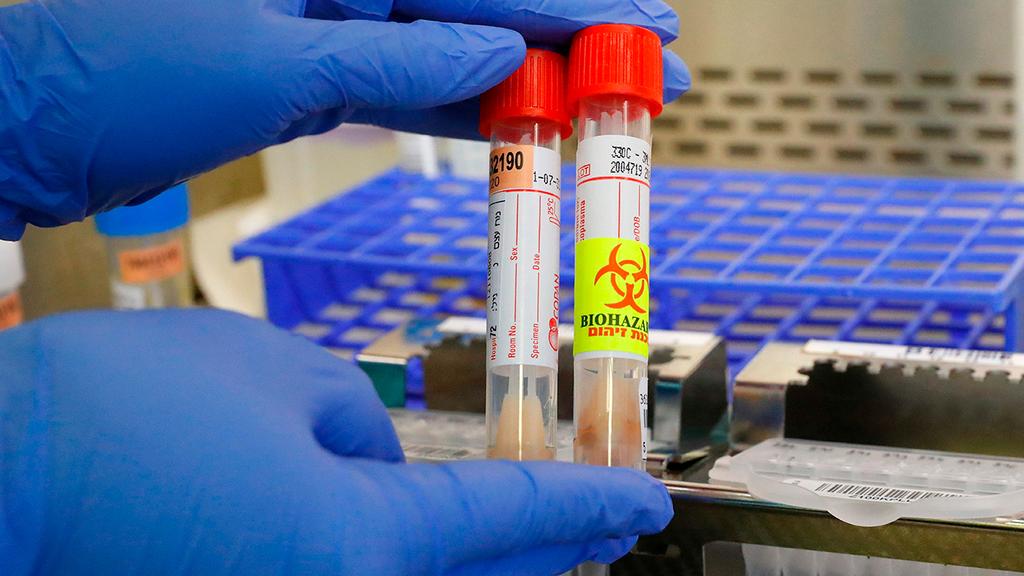Getting your Trinity Audio player ready...
The Annual State Comptroller report published on Monday warned that the country's healthcare system is not fully prepared to combat an influenza pandemic.
State Comptroller Matanyahu Englman's report highlighted insufficient and expired medication, decreasing rates of vaccination, and a lack of readiness ranging from the Health Ministry to HMOs and the general hospitalization system.
Hospitals that are already overcrowded year-round are struggling under the demands of the current coronavirus outbreak, a possible eight-week influenza pandemic which is likely to see approximately 150,000 patients admitted to hospitals, 25,000 patients requiring intensive care treatment and 12,500 needing intubation and ventilators.
Despite the Health Ministry formulating a plan in 2005 to prepare the healthcare system for a pandemic, including the mass purchase of anti-viral drugs, the report found that there are enough drugs for only 16% of the population today, and not the advised 25%.
The latest findings are likely to exacerbate concerns voiced in recent weeks over underinvestment throughout the healthcare system, which has primarily focused on the lack of protective equipment and the quantity of respirators.
In addition, the state comptroller highlighted the lack of a detailed plan to close identified gaps in the healthcare system – including intensive care beds, medical staff, and equipment – that will enable effective treatment in the case of a pandemic, and bolster capabilities to manage other major outbreaks.
"Given that this is a real threat to the State of Israel, the Health Ministry – in collaboration with the Defense Ministry and the National Emergency Authority – must determine the possible and appropriate way for the State of Israel to prepare for an influenza pandemic," Englman said.
According to the report, giving additional cause for concern, the seasonal influenza vaccination rate of citizens aged 65 and older decreased from 64.3% in 2015 to 60.4% in 2018.
Englman called on the Health Ministry to find ways of encouraging vaccination, in addition to targeting specific population groups and train additional staff to administer vaccines.
During the recent measles outbreak, among infected patients aged between two and 19 years old, at least 49% came from families who refused to vaccinate their children. Half of all those infected were residents of Jerusalem, of which 80% were from the ultra-Orthodox Jewish community.
"The rise in ideological opposition to vaccination, the current measles outbreak and the draft legislation that has been submitted in recent years point to the need for the Health Ministry to develop a long-term, systematic solution for dealing with vaccine opponents, with the aim of maintaining public health, while respecting human privacy and dignity," wrote Englman.
The failure of parents to bring their newborns to well-baby clinics (Tipat Halav), where children receive their first vaccination, was primarily attributed to ideological or religious opposition, forgetfulness, fear of side effects and economic difficulty.
"While the Health Ministry receives information on the number of babies born each month, it does not use this information to track and locate infants who do not arrive at the well-baby clinics, and especially to pinpoint strongholds of vaccine refusers," Englman said.
Responsibility for tackling deficiencies outlined in the report primarily rests with the Health Ministry, Englman said, though healthcare providers and other government ministries also have an important role in closing the gaps.
Responding to the report, the Health Ministry said it was studying its findings and already applying some recommendations in the current coronavirus outbreak, including the purchase of additional hospital equipment and establishing dedicated isolation wards.
Following the publication of the report, the Prime Minister's Office emphasized that the Israeli health system had been ranked among the top 10 in the Bloomberg [Healthiest Country] Index in 2019 and that the health budget had almost doubled over the past decade, adding that there was still room for improvement and that the government would study the findings of the report.
Sivan Hilaie also contributed to this article.
First published: 18:35, 03.23.20



